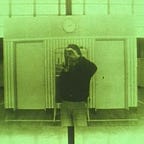SAMURAI ASSASSIN
Often times, in cinema, a director has that one film that overshadows the rest of his work in terms of popularity. Because of this, many films go unnoticed and unwatched, even if they’re superior in quality, and this is sadly the case of “Samurai Assassin (1965).”
For good reason, director Okamoto Kihachi is best known for his 1966 film “The Sword of Doom,” but I found this film to be more satisfying on many levels.
From start to finish, there isn’t a single dull shot. A stark black and white high contrast cinematography sets the atmosphere and finishes off the aesthetic. There are a lot of wide shots showing us beautiful landscapes buried in snow.
These wide shots are also used in the interior scenes, which help a lot in painting a clear picture, especially when there is an in-doors fight with many people involved. When the camera gets up close to the characters’ faces, we are there with them as they fill up the entire screen. This adds to the tension and makes the film that much more immersive.
The film is edited in a manner that you’d see in a Hong Kong action film (see John Woo‘s “Hard Boiled”), very quick and precise edits heighten the tension in the action scenes.
The main lead here is none other than the legendary Toshiro Mifune (Tsuruchiyo Niiro). His role fits him perfectly; he is a man with an aura that fills the room. The whole cast gives an incredible performance, most notably Yûnosuke Itô (appears in a number of Kurosawa films: Ikiru, High and Low, Sanjuro) in the role of Kenmotsu Hoshino, and Eijirō Tōno (Seven Samurai, Tokyo Story, Yojimbo) in the role of the father figure, Masagorô Kisoya.
It’s going to be hard to talk about this film without revealing important plot points, but I’ll do my best. This is the story of a fatherless man lost in the world, trying to find his place within this old Japanese society, a society based on family and lineage. A man without a father has no lineage and has no place in this society. Even as an adult, he never knew the identity of his father (his mother and his caretaker kept it a secret), but he knew he had samurai blood running in his veins, and that is what he wanted to be, a high-ranking samurai. He worked and studied his entire life to achieve this goal but failed multiple times, but now fate has given him one more chance. This chance came in the form of a plot from a clan to kill an important Shogunate general.
Tsuru enters this political game with nothing in mind except the fame and riches it might bring him. He doesn’t care about the who and why. His only aim is to kill his target, Lord Naosuke Ii.
The bulk of the film is this political game with all the scheming and backstabbing. This is where most people would lose interest because it shows the weaker side of the film. The political game drives the story forward and keeps us on our toes, but it does suffer from some exposition, which can be very off-putting for some. There’s also the backstory of Tsuru, and it is revealed in bits with a very small number of flashbacks.
There’s also action, lots of action, some of the best fighting scenes I have ever seen, especially the last epic climatic fight. It is worth watching the film just for that fight.
The film takes the classic hero’s tale and perfects it. It is nothing game-changing or radical, but it doesn’t have to be.
In my humble opinion, it is a true masterpiece. It is not without its faults, but what is good here is perfected.
